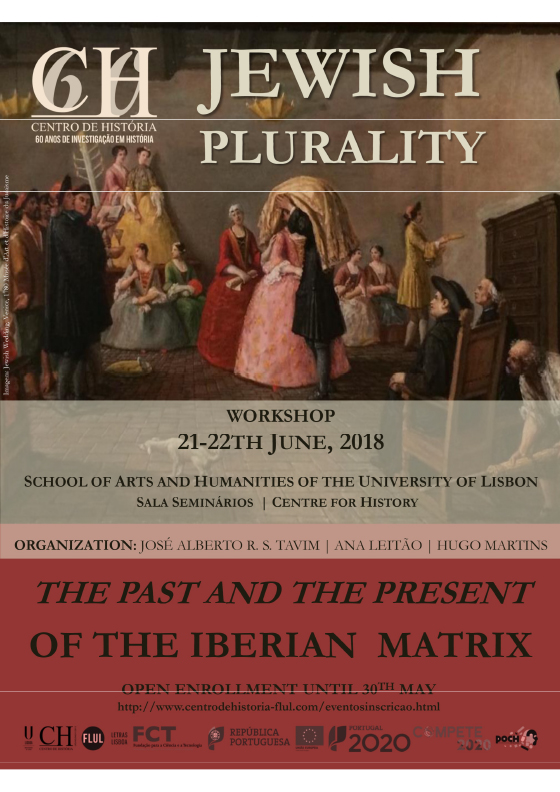Workshop | Jewish Plurality - The Past and the Present of the Iberian Matrix
Faculdade de Letras da Universidade de Lisboa, 21 e 22 de Junho de 2018, Sala de Seminários (instalações do CH-ULisboa) a partir das 10:00
Organização | Centro de História da Universidade de Lisboa
Descarregar Cartaz / Download Poster
Descarregar Programa / Download Programme

The world of Jews of Iberian origin is, as is well known, diversified in the temporal and spatial framework, as well as in terms of its religious identity. There is, notwithstanding, a designation that needs further and more rigorous discussion. The designation “Sephardi” – in relation to Jews of Iberian origin – has fuelled disparaging perspectives throughout national historiographies and misunderstandings with respect to the diversity of its socio-cultural and religious identities. Fundamentally, such disparity arises from the specific interests upon which scholars focus their wide-ranging thematic approach. To illustrate this idea, the approach of an historian of the medieval period to these Jews has to be symptomatically different from those that are interested in the study of the modern and contemporary Diaspora. On its turn, the methodological orientations themselves adopted in the study of Jews of Iberian origin play a central role in the application of the “Sephardi” designation. The diversity in the application of such designation - both inside the communities of Iberian origin, and even with respect to Jews that do not carry it (but yet have adopted an Iberian minhag) – reflects the perplexity of its use as a general comprehensive concept. In addition, it should be noted that the knowledge of sources has a direct impact regarding the application of the designation “Sephardi”. Let us take another example: the historian of the Portuguese community of Amsterdam knows that the Jews from this city never perceived themselves as Sephardi, but as Portuguese; and the scholars of the Jews from the Ottoman Empire know that this one was a highly esteemed designation from the standpoint of identity for the Jews of Iberian origin that lived in the countries born out of the latter’s dismemberment. In view of the present outline, this event seeks to address the complexity of this thematic, taking as a reference the objectives and areas proposed.

